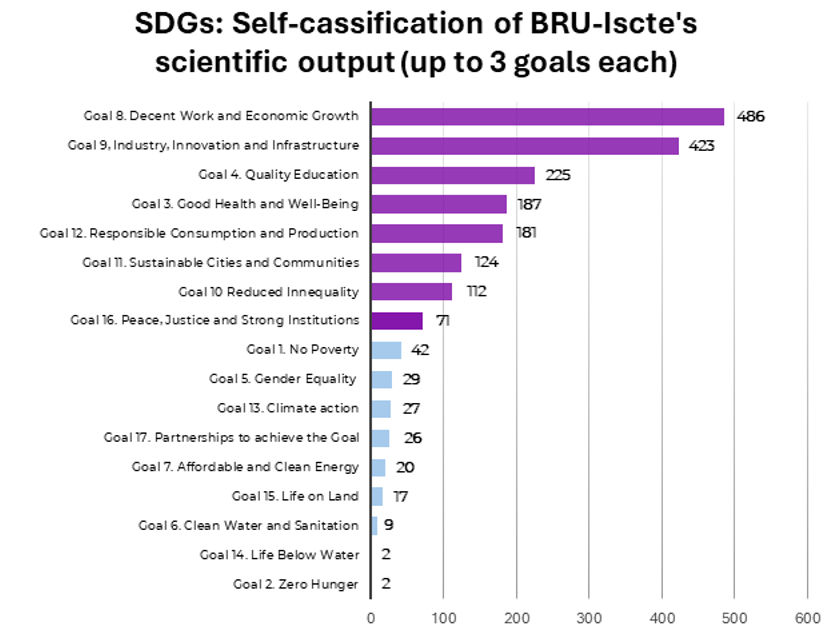BRU-Iscte is invested in promoting and contributing to the United Nations’ Sustainable Development Goals (SDGs), through the efforts of our researchers and students.
There are very tangible benefits in aligning BRU-Iscte’s research agenda with the SDGs, because they represent a set of recognised priorities that are cross-disciplinary and extend over national boundaries. These matters stimulate both interdisciplinary and international collaboration, and because they deal with global matters that require different fields of knowledge, projects that align with the SDGs have an advantage in attracting funding.
Aligning our research output with the SDGs also widens the areas it can potentially reach (like public policy). The goals provide clear targets and indicators to measure the impact of our production, informing us of the direction(s) we are taking and where we want to go.
Fully endorsing the Iscte’s Sustainability Policy for Research, BRU-Iscte uses Iscte’s proprietary information system Ciência-IUL, to continuously encourage our research team to identify the relevant SDGs (up to 3 per contribution) in their outputs—from projects to publications. Similarly, doctoral students are encouraged to share the SDGs related to their dissertations, to help us create the big picture of BRU-Iscte’s impact.

In the period between 2018 and 2023, BRU-Iscte researchers have listed 920 publications, 37 projects, and 143 doctoral theses as contributing to specific Sustainable Development Goals. Of these, the declared research output is mostly aligned with:
- SDG 8 – Decent Work and Economic Growth with 426 publications, 19 projects, and 60 doctoral theses
- SDG 9 – Industry, Innovation and Infrastructure with 375 publications, 16 projects, and 48 doctoral theses
- SDG 12 – Responsible Consumption and Production with 171 publications, 1 project, and 10 doctoral theses
- SDG 4 – Quality Education, which emerged in 2019 as one of the main SDGs to which BRU’s research is most committed to, with 160 publications, 13 projects, and 65 doctoral theses
- SDG 3 – Good Health and Well-being with 130 publications, 12 projects, and 57 doctoral theses

